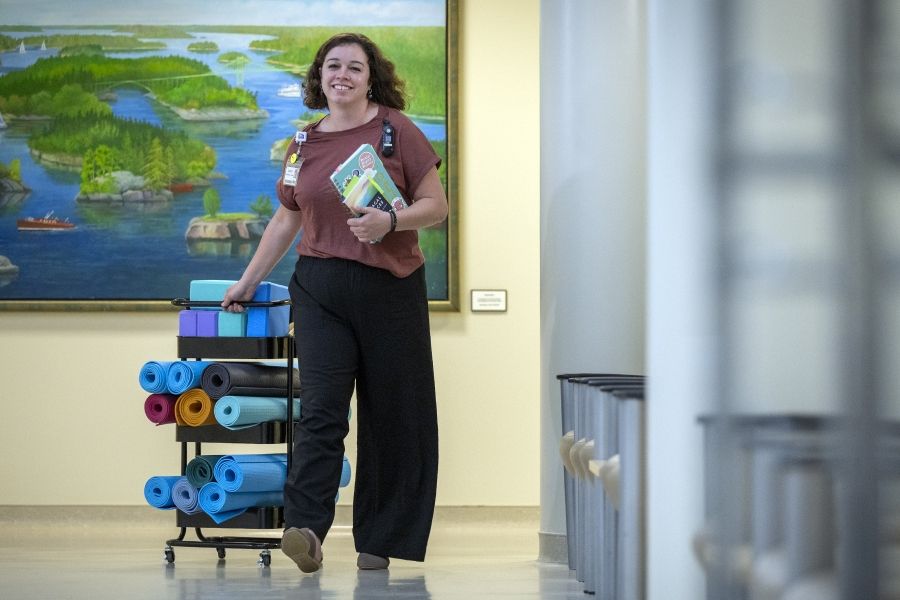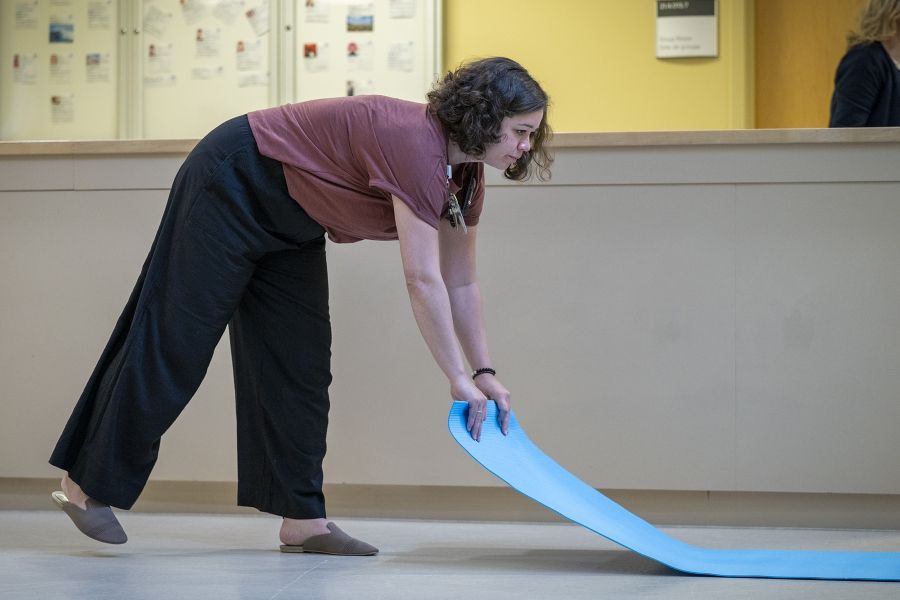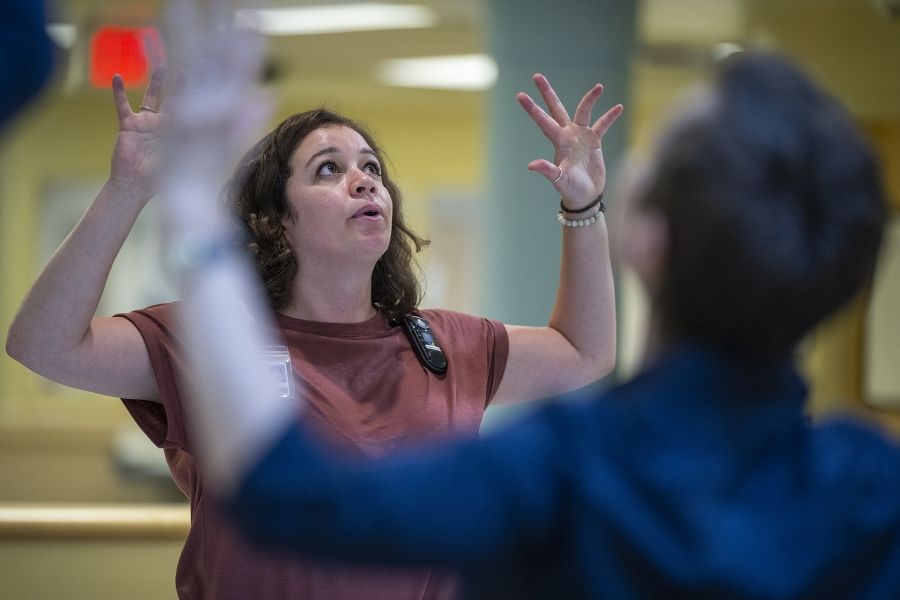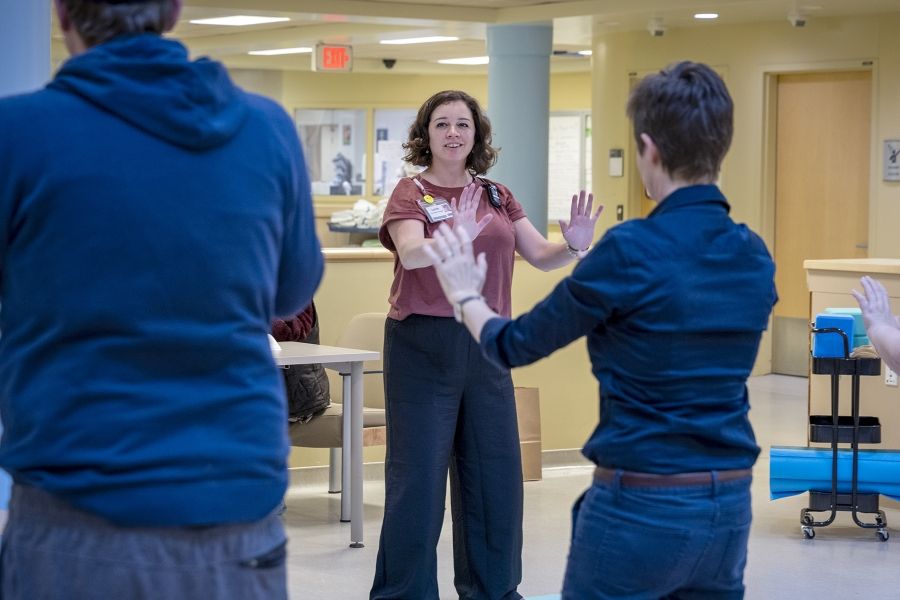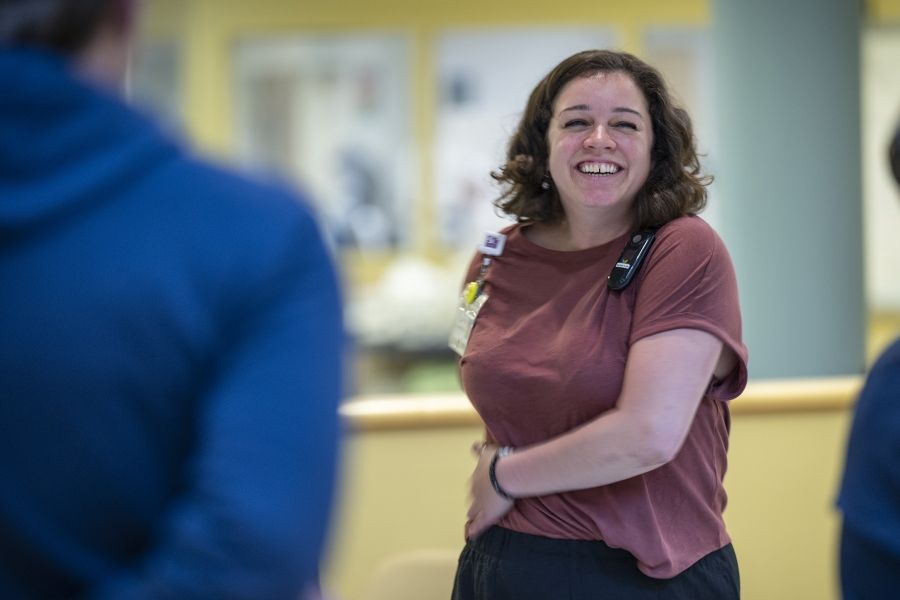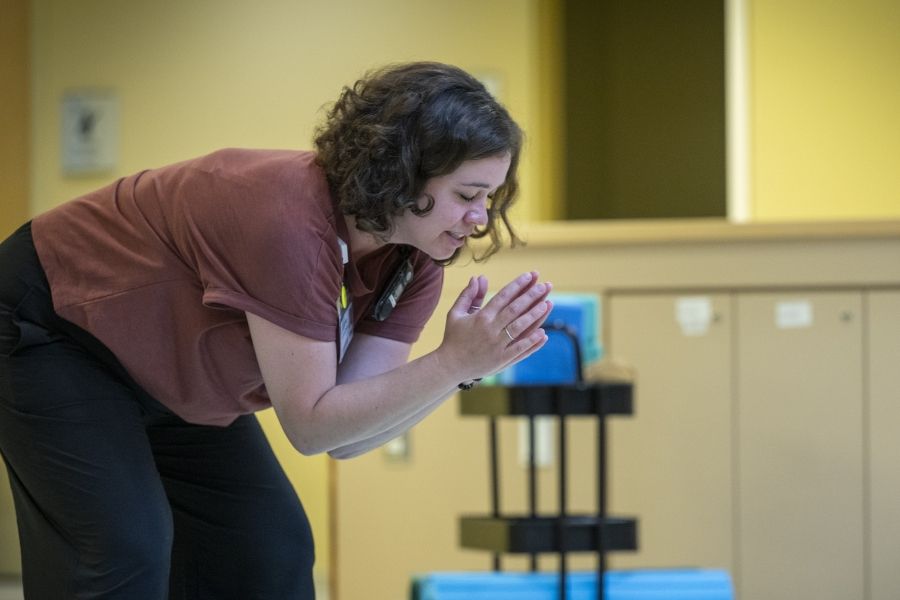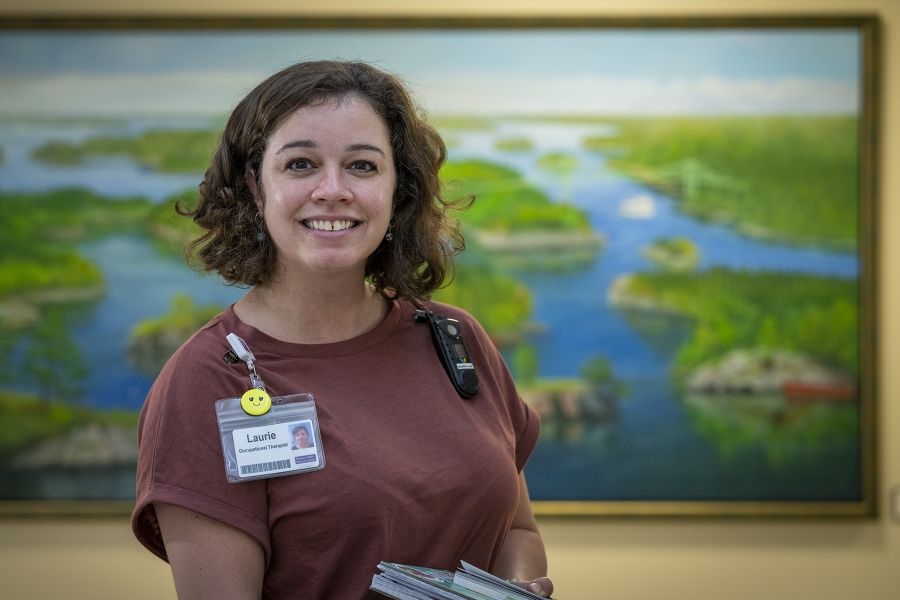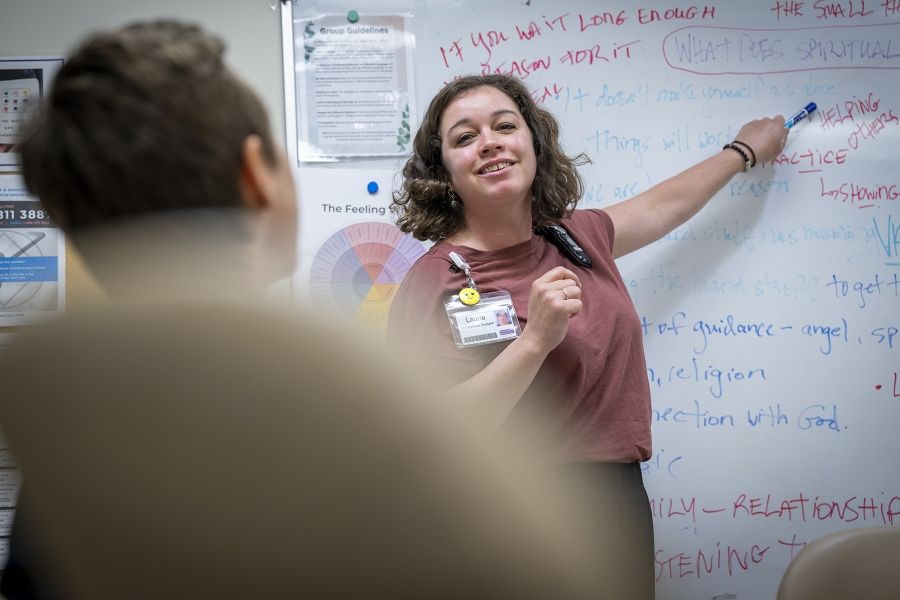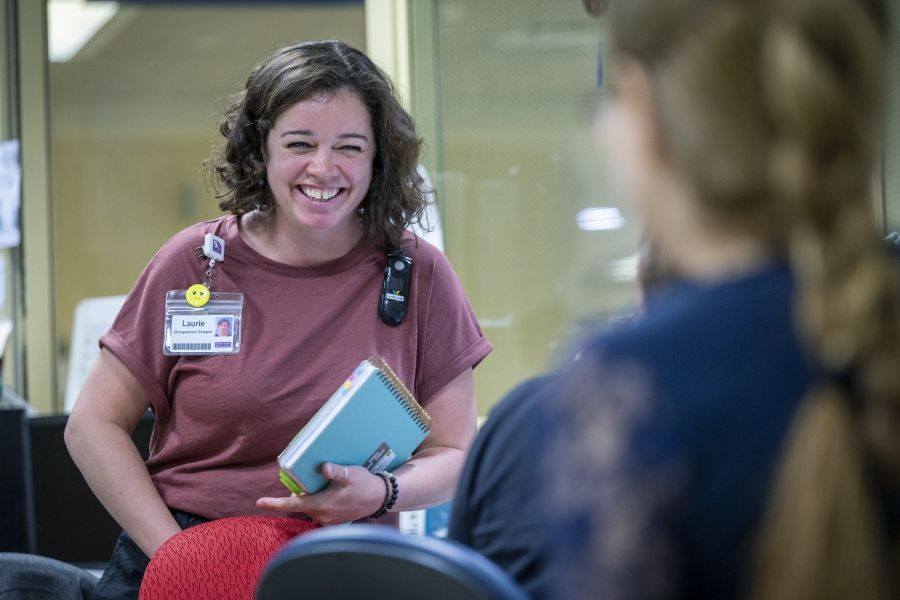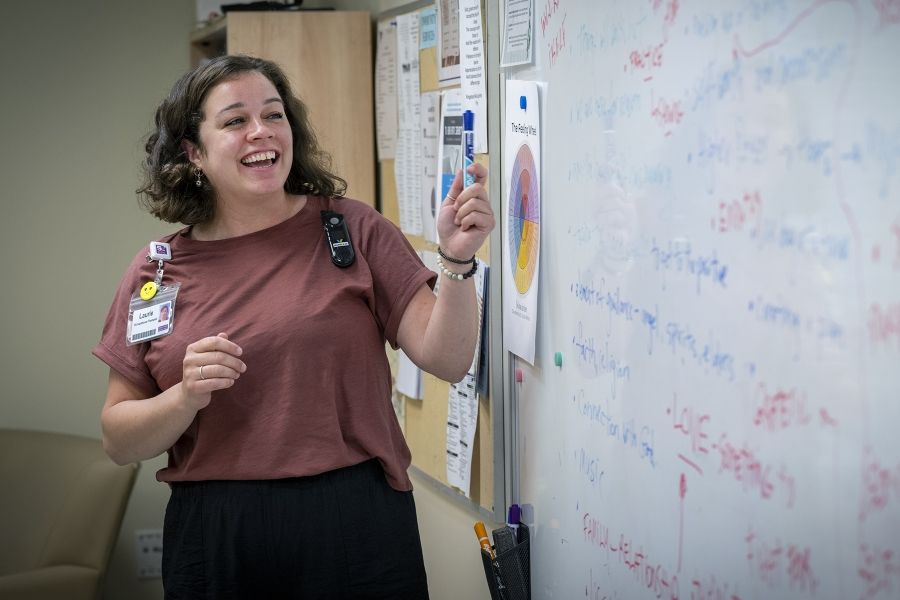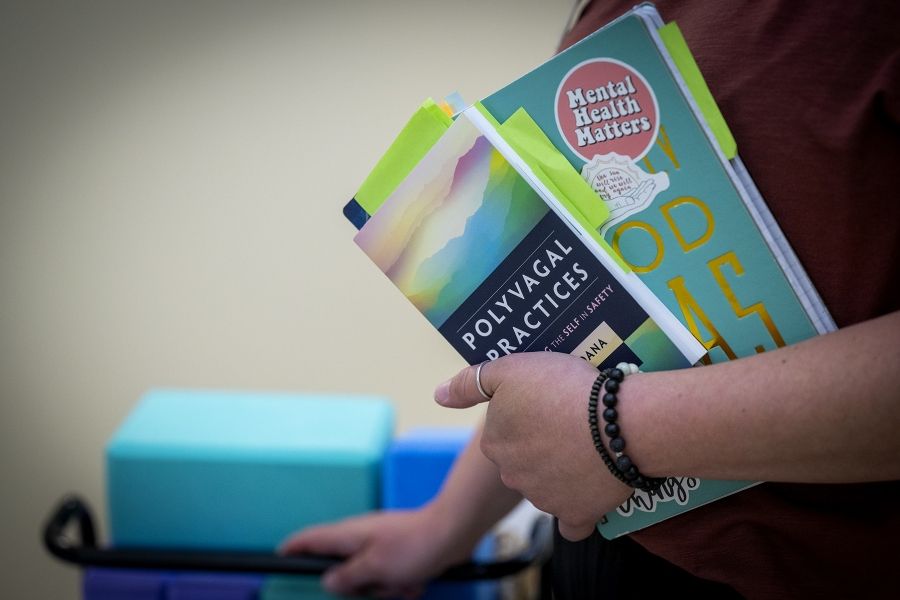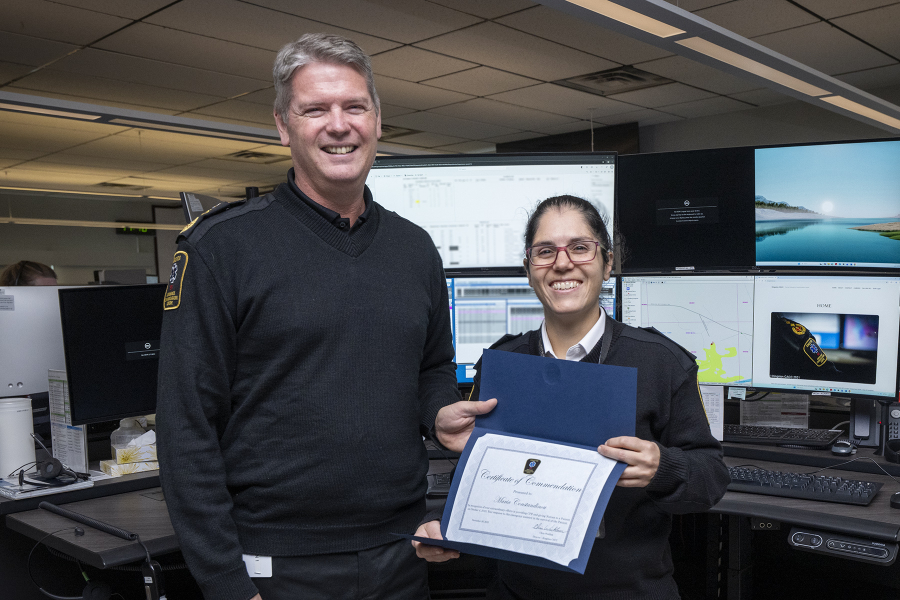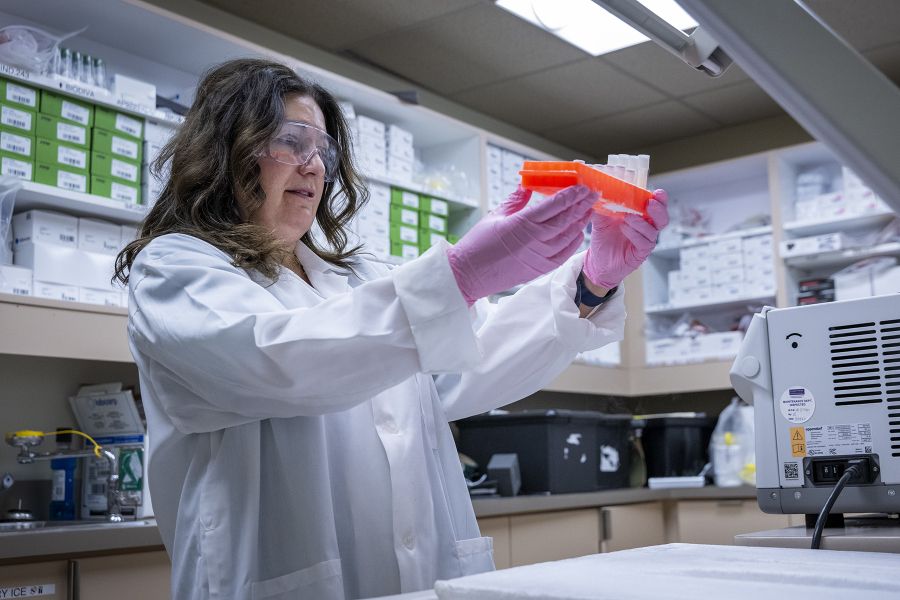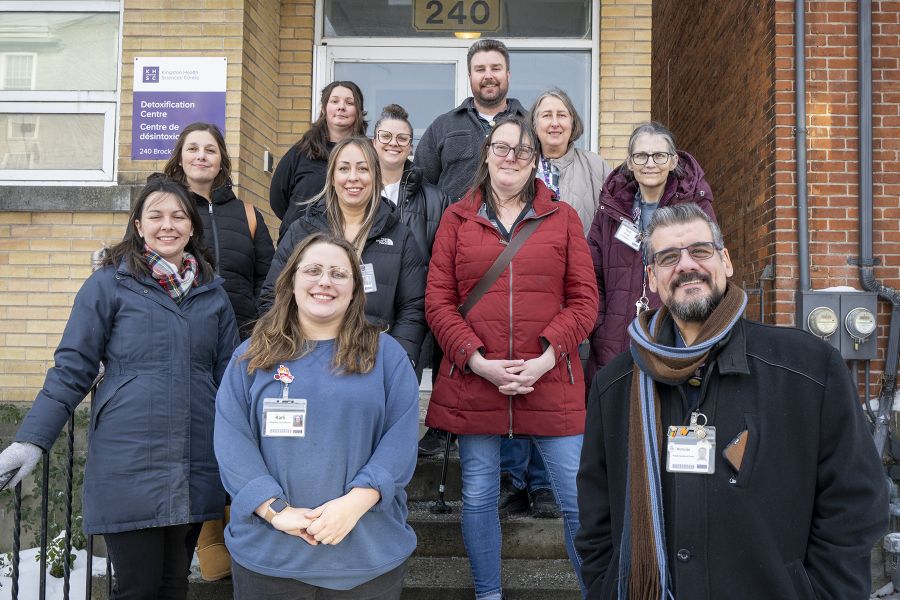Effective immediately masking is required for everyone when present on all inpatient units, in the Emergency Department (ED), the Urgent Care Centre (UCC), and the Children’s Outpatient Centre (COPC).

There’s a sticker on Laurie Hill’s notebook that says “mental health matters.”
It’s more than a colourful decoration. It’s a daily reminder of the commitment she brings to her patients.
Hill is a triple threat when it comes to mental health support: interim programming coordinator for Kingston Health Sciences Centre's (KHSC) inpatient adult mental health and addiction care program, occupational therapist and certified somatic psychotherapist.
“Drawing on both traditional occupational therapy approaches and somatic-based psychotherapy, my work supports individuals in reconnecting with a sense of purpose and possibility by addressing both the psychological and embodied dimensions of recovery,” she explains.
“Recovery looks different for every patient. It’s a deeply personal, non-linear journey. My goal is to help people not just cope, but re-engage with life in ways that feel empowering and meaningful to them.”
Her passion lies in breaking down barriers and stigma.
That’s why she’s championing a diverse range of programming to not only meet individuals where they are, but also support their unique definitions of recovery in environments that can sometimes feel overwhelming.
“Programming brings rhythm, predictability and purpose throughout the day. It’s about offering options that meet clinical needs, but also honour the human need for connection, meaning and individualized healing.”
One example is her mindful movement group, a morning practice designed to support mental health recovery, emotional resilience and nervous system regulation.
“Research, and my clinical experience, shows that before people can make use of cognitive strategies, their bodies often need to feel safe. Mindful movement helps build that sense of internal safety, grounding and self-compassion.
“Patients have shared the group helps them feel calmer, more present and more hopeful. For some, it’s their first experience of connecting with their body in a way that feels supportive rather than overwhelming.
“We've seen improved participation in other therapies, reduced agitation and increased engagement in care. It’s a gentle, accessible invitation to healing. One breath and one movement at a time.”
Hill has also partnered with our spiritual health team to co-host a group where patients reflect on personal values, belief systems and sources of strength.
“It’s important to explore an individual’s values because trauma and mental illness often disrupt a person’s sense of meaning and connection to self or something greater. When patients have space to reclaim what matters to them, they often experience increased motivation, emotional grounding and a sense of agency in their recovery.”
See what we mean when we say Hill is committed to her patients?
She’s always ready to go the extra mile… with her signature smile.
“Every day, I have the privilege and honour of walking alongside people during some of the most vulnerable and courageous moments of their lives. My heart is on the unit with the patients.
“I believe everyone deserves to be met with dignity, especially in their most vulnerable states. That belief shapes how I lead, how I communicate and how I show up every day.”
Because for Hill, “mental health matters” isn’t just a saying — it’s her purpose.

